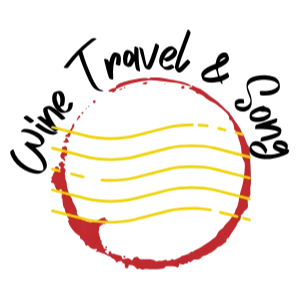“Winding your way down on Baker Street, light in your head and dead on your feet”… Since way before the Swinging Sixties, London has been the place where music has happened. From the founding of bands, to the recording of classic albums and no shortage of album covers, it all happened in London.
As a local Music Fan, I have walked these London music landmarks many times, always keen to find out the stories, the covers and the songs behind the location. So, let me take you by the hand and lead you through the streets of the London to find the Rock n Roll Landmarks of this great city.
Landmarks & Locations
Whilst the Baker Street of Gerry Rafferty’s classic may be a metaphor, encapsulating the ‘City’ of London to the ‘City’ of Glasgow in his album, it was the home of the Apple Boutique on 94 Baker Street, long since closed.
But let’s head over to Soho, and start our musical journey here. For each area I’ll share the nearest underground line and tube station to get you to the right place.
Soho’s Music History: Tin Pan Alley & Ronnie Scott’s Jazz Club
- Tube Station: Tottenham Court Road
- Underground Lines: Central Line (red), Northern Line (black), Elizabeth Line (purple.)
Denmark Street: London’s Tin Pan Alley & The Heart of UK Rock
Off Charing Cross Road, near the junction of Oxford Street and Tottenham Court Road this short street was once home to writers, designers and instrument shops. Whilst less famous than many other landmarks on the list, Denmark Street probably has the greatest connect to so many classic artists and albums you still listen to.
Captain Fantastic and the Brown Dirt Cowboy (Elton John and Bernie Taupin), the ‘Tin Pan Alley Twins’ met here.. A young Paul Simon tried to find a publisher for his early songs, but were rejected as being too uncommercial. However, he wasn’t put off and returned to record his first album with Art Garfunkel, in Regent Sounds Studio at number 4.
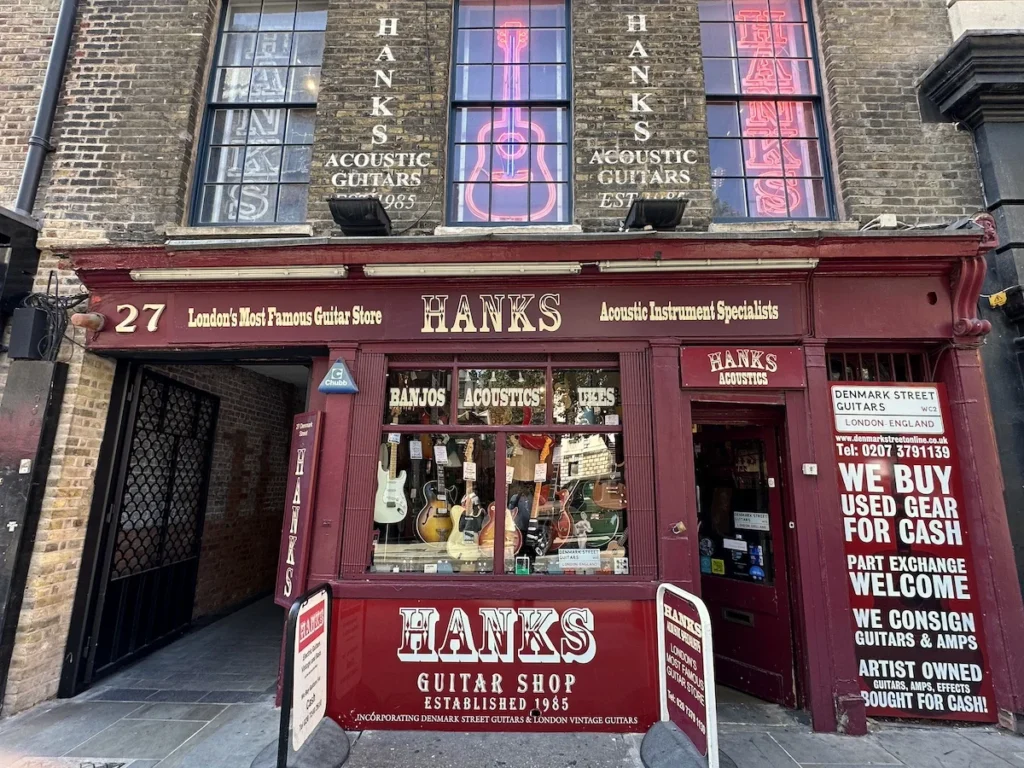
Hanks Guitar Shop 27 Denmark St, London WC2H 8NJ
In the front room, upstairs at number 6 Denmark Street, a young pair of designers would dominate the world of classic album covers. Aubrey Powell and Storm Thorgerson lead Hipgnosis to create some of the world’s most iconic album covers including Dark Side of the Moon, Animals (featuring Battersea Power Station), Houses of the Holy and so many more.
Grey Suited bouncers were often stationed outside the publisher’s doors to restrict the constant interruption of wannabe song writers seeking an audience. You’d have to impress these well dressed bouncers if you were to get upstair,s in what became known as ‘The Old Grey Whistle Test’. You may recognise the name from the BBC’s long running musical show of the same name. Now you know where it came from!
Walking back across Charing Cross we can enter into Soho.
Ronnie Scott’s Jazz Club. Sitting on Frith street, this legendary jazz club has been a Soho institution for over half a century, It moved to this Soho address back in 1969 and plays host to fantastic jazz musicians most nights, Famous performers include Miles Davis, Dizzie Gillespie, Nina Simone, Ella Fitzgerald, Prince, Ronnie Wood and Charlie Watts.
Ronnie Scott’s 47 Frith St, London W1D 4HT
Did you know Ronnie Scott was a famous musician, before he set up the jazz club? That’s him adding the distinctive sax line for the Beatle’s Lady Madonna recorded in EMI studios, Abbey Road.
Bar Italia at 45 Firth Street is one of the oldest coffee shops in London, worthy of a stop and a photograph of its iconic sign.
Bar Italia 22 Frith St, London W1D 4RF
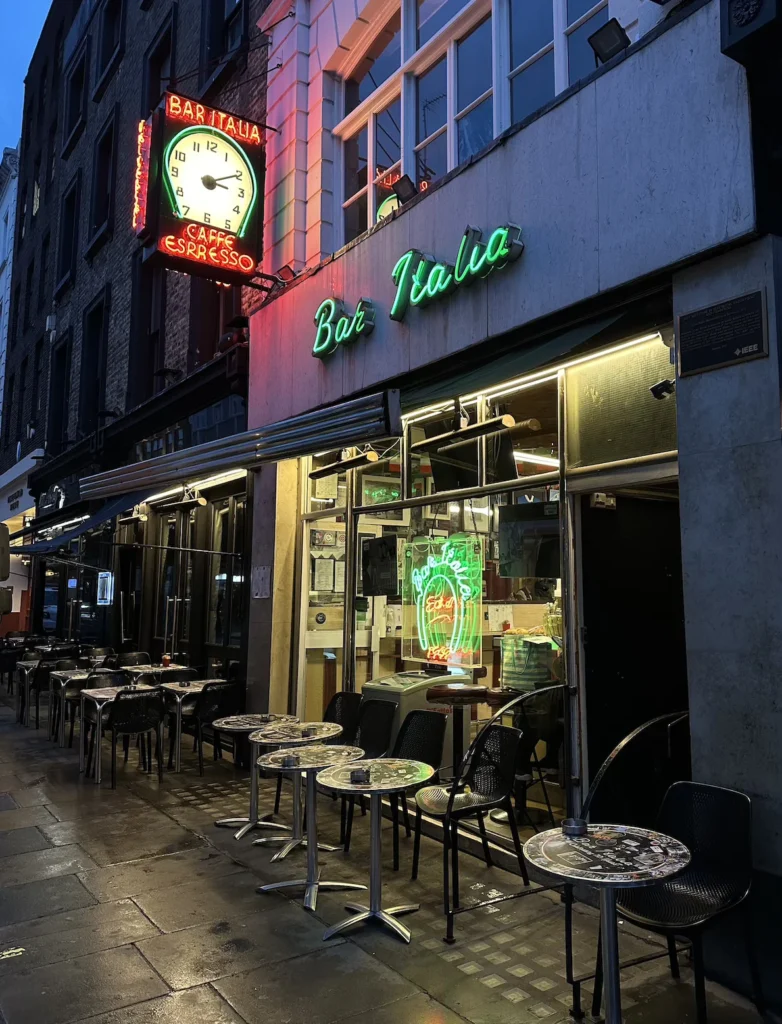
St . Annes Court, Soho
This grotty looking alley was once the home of Trident Studios where the Beatles recorded Hey Jude, David Bowie recorded The Rise and Fall of Ziggy Stardust, Carly Simon recorded No Secrets, and Lou Reed recorded Transformer. We’ve not enough space to mention the sheer number of major artists and albums recorded at this place.
17 St Anne’s Ct, London W1F 0BQ
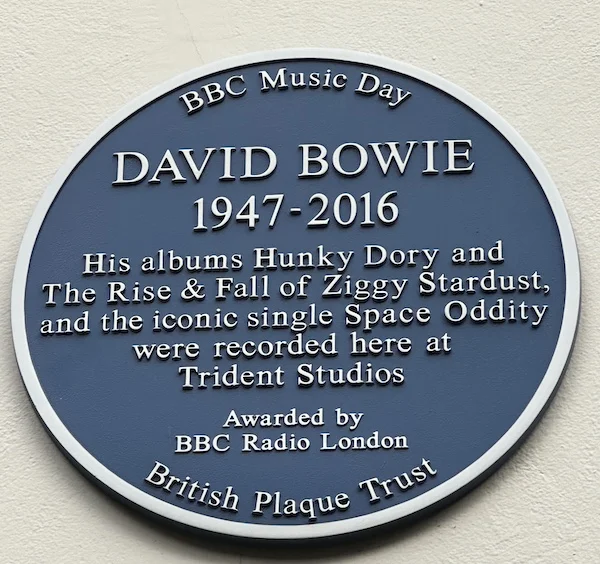
Look up and you can see the Blue Plaque commemorating Bowie’s association with this location.
Keep walking towards the brightly lit bakery and we step onto Wardour Street. Across the street you’ll see Hammer House, a building that gave its name to the British horror movies of the Sixties and Seventies. But we are here to see the location of the Marquee Club.
The Marquee Club, Wardour Street: Where Rock Legends Played
90 Wardour Street, Soho
Now trendy apartments, the Marquee Club started as a jazz and skiffle club that grew in stature to become a key location for bands on the way up. The Rolling Stones performed their first gig here, many of the emerging blues bands of the sixties would play here including Alexis Korner, Long John Baldry and the Yardbirds. In later years Mark Knopfler and Dire Straits, U2, REM and Guns N’ Roses would grace the stage.
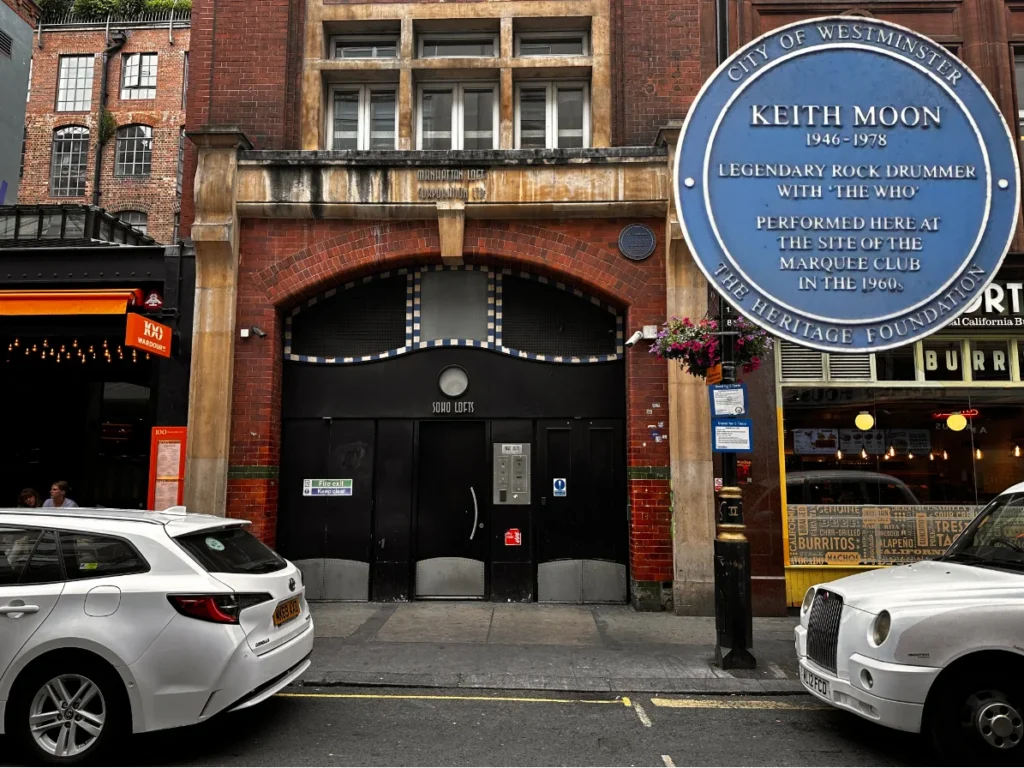
Let’s keep walking down Soho towards Berwick Street. Still home to a market on most days, Berwick Street is also the album cover location for What’s the Story Morning Glory by Oasis. The cover shows two men DJ Sean Rowley and album sleeve designer Brian Cannon passing each other on the street.
Head for Berwick St, London W1F 0PH
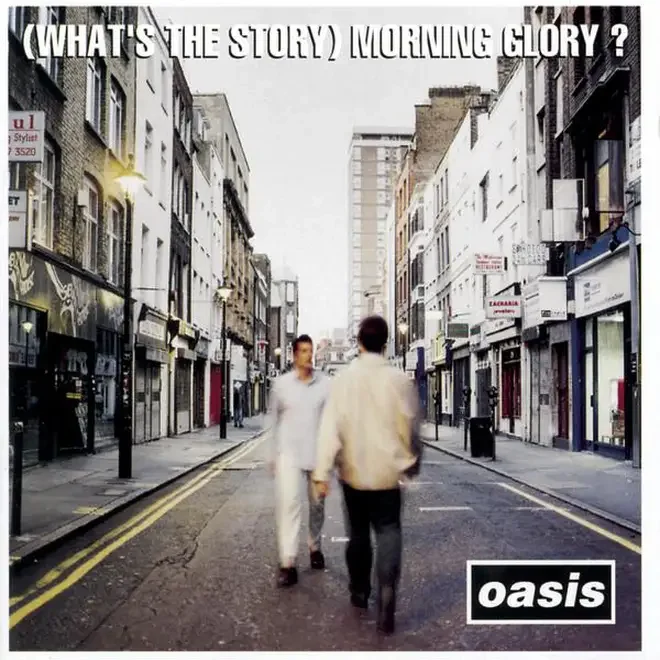
A five minute walk will get us onto Saville Row, the traditional London home of high end tailors. You may know it as the location of the Kingsman Tailor Shop at number 11 Saville Row – actually the famous Hunstman Tailors. But we’re not here for the movies, we’re here for the Music so we’ll walk down towards Burlington Gardens. You are looking for the White building that is now home to Abercrombie and Fitch. The blue plaque may give you a clue that this was the home of Apple Corps, the Beatles Record Label. If you were here on a cold January day in 1969 you would have heard a concert performed on the rooftop. Yes this is the location of the Beatles last ever concert.
3 Savile Row, London W1S 3PB
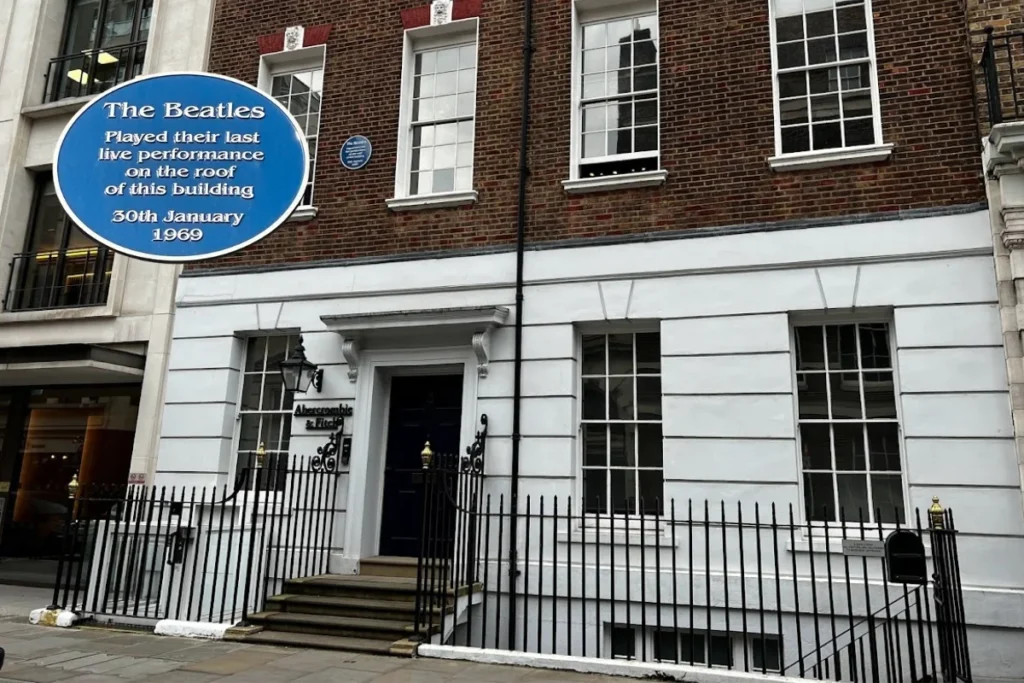
David Bowie’s London: Heddon Street & Piccadilly’s Music Icons
- Tube Station: Piccadilly Circus
- Underground Lines: Piccadilly Line (Purple)Bakerloo (Brown)
Piccadilly Circus remains one of the most visible London Landmarks. Pink Floyd were photographed here in 1967 and I am sure other bands, tool. But we’re going around the corner from Piccadilly Circus will take us to the Starman Pub which gives you a clue to our next location. Head into the corner of Hendon Street and look for the wall that is coloured blue with a zigzag on it. Look up to see the Plaque that marks the location of the album cover for Bowie’s Ziggy Stardust.
Stop in for a drink at the Starman pub and see the iconic album cover painted on the wall.
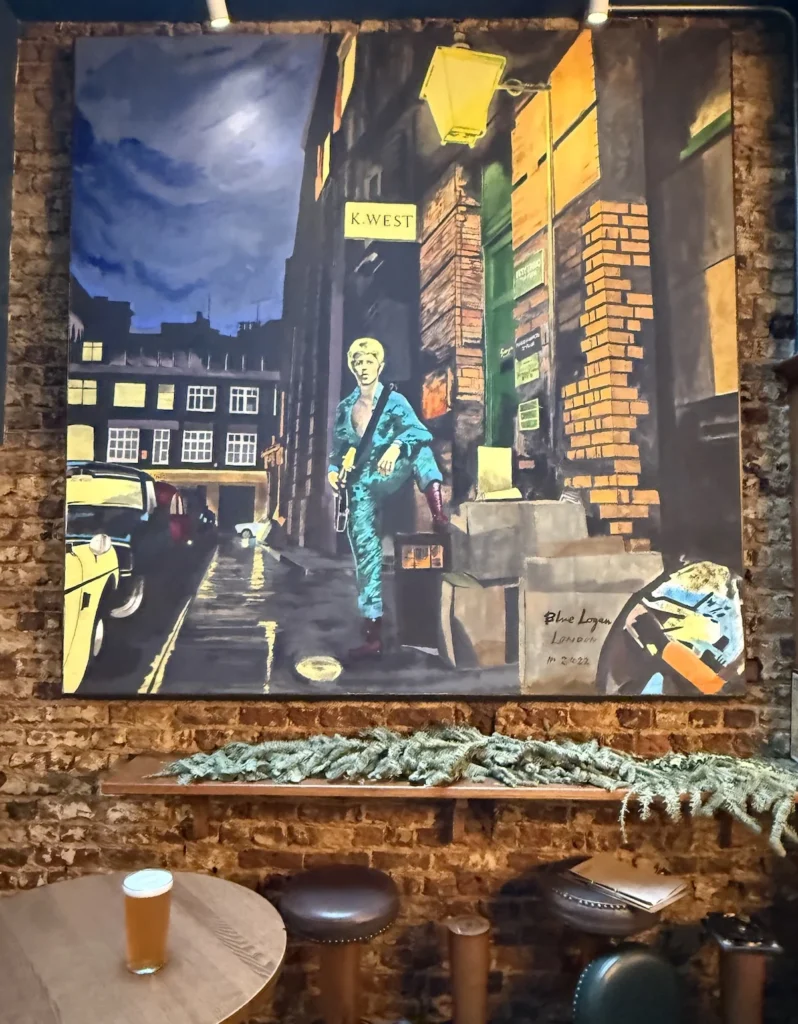
23 Heddon St, London W1B 4BQ
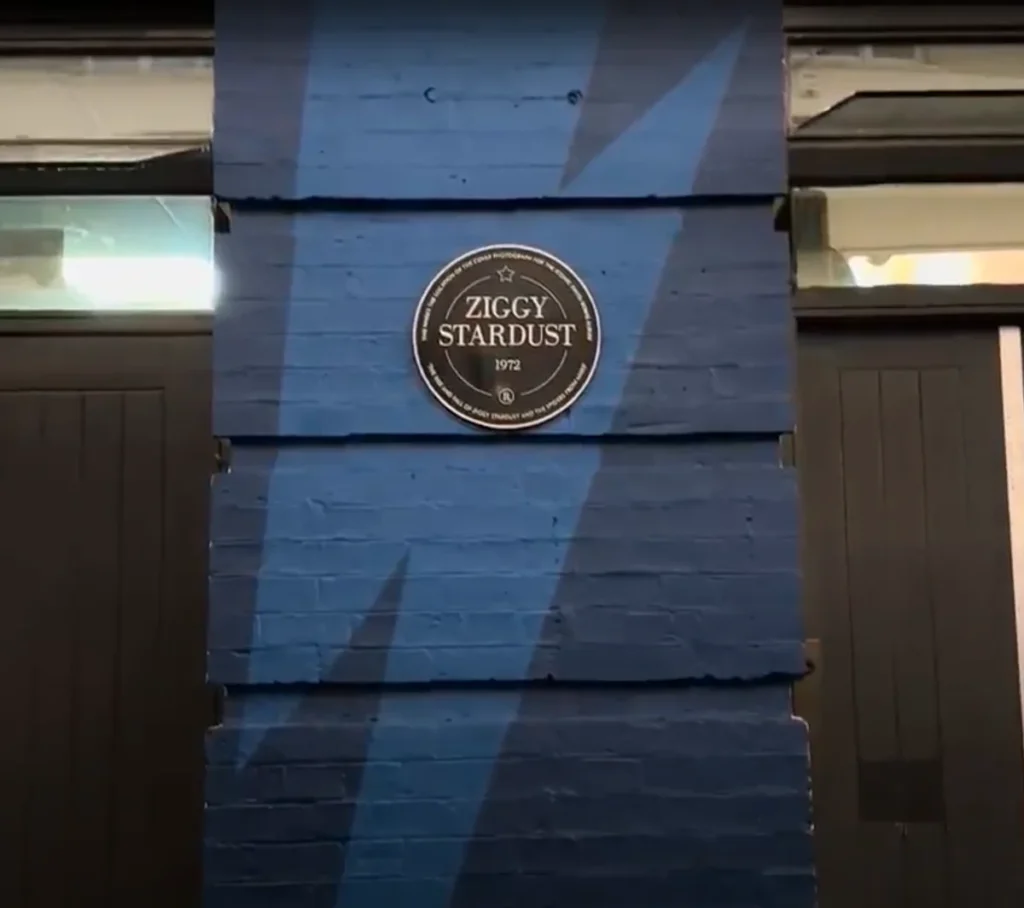
The Hard Rock Café London: Where Rock Memorabilia Lives: on Piccadilly Circus is not the original location, that sits at the other end of Piccadilly. This global burger chain has been forever synonymous with music and their cafe and store at 150 Old Park Lane is where it all began. Pop in for burgers and ask to visit the vault downstairs for a selection of rock history including guitars, props and Beatles contracts. It’s an easy walk along to the other end of Piccadilly but do pop into Maison Assouline for coffee and a nose at their wonderful books!
- 150 Old Park Ln, London W1K 1QZ
- Tube Station: Hyde Park Corner
- Underground Lines: Piccadilly Line (Purple)
Carnaby Street & The Rolling Stones: London’s Swinging Sixties
- Tube Station: Oxford Circus
- Underground Lines: Central Line (red), Victoria Line (blue), Bakerloo (brown.)
Now referred to as ‘Carnaby’ to reflect the handful of pedestrian streets that were synonymous with the Swinging Sixties. Home to cutting edge fashion shops in the Sixties, it is now home to RS9 the dedicated Rolling Stones shop, You can’t miss the large tongue in the shop window! At Christmas, this place offers some great light installations if you want some pictures!
9 Carnaby St, Carnaby, London W1F 9PE
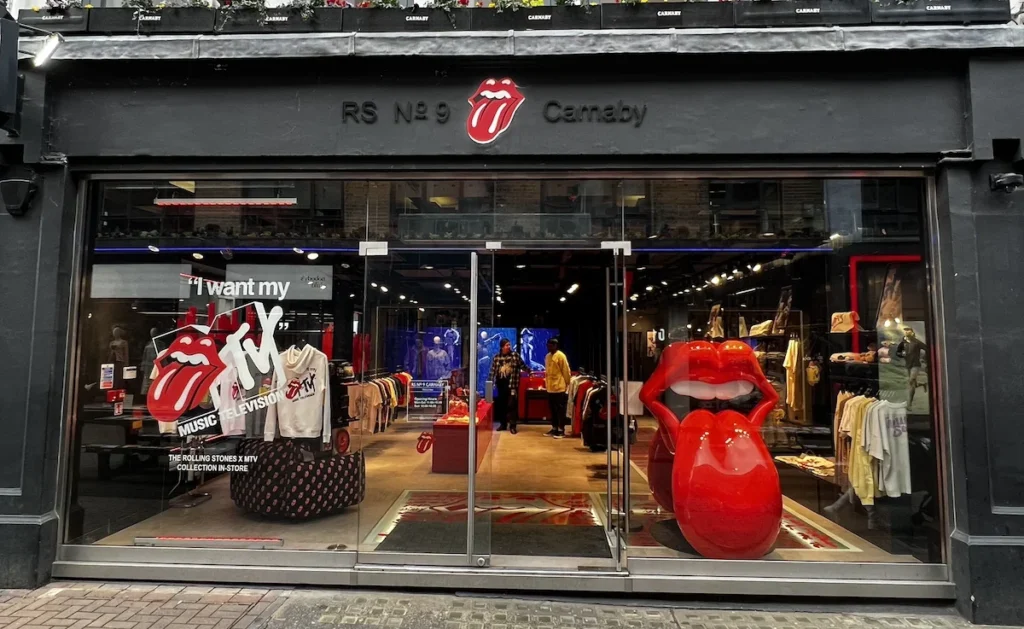
Let’s head further afield to some other music landmarks you may know.
Abbey Road & The Beatles: The Most Famous Music Landmark in London
- Tube Station: St. John’s Wood
- Underground Lines: Jubilee Line (Silver)
Possibly the most famous of all London’s Music Landmarks, the Abbey Road Crossing in St John’s Wood featured on the album cover for the Beatles penultimate album. It’s just a few minutes walk from St Johns Wood tube station.
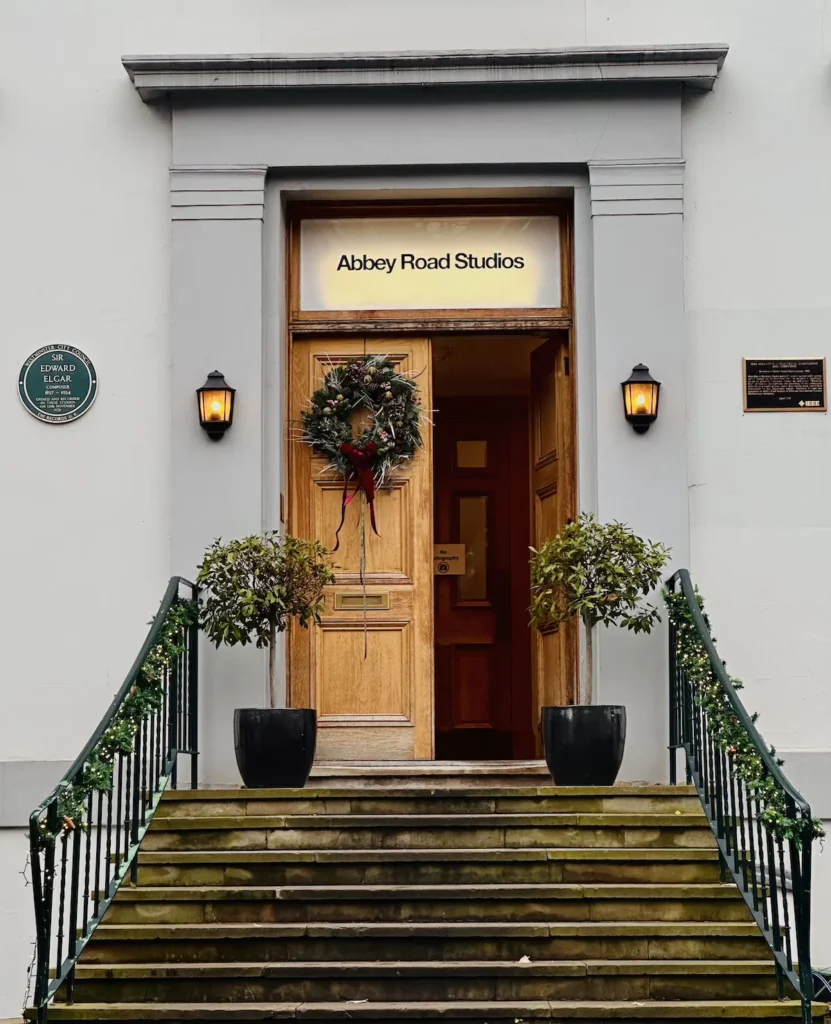
Abbey Road Studios 3 Abbey Rd., London NW8 9AY
Originally known as EMI studios, it only changed the name after the release and success of the Beatles album. Unless you book a visit or a tour (which happens rarely, you won’t get inside but you will see the iconic door, the Beatles graffiti on the wall and you can stop into the Studio shop for some music themes gifts!
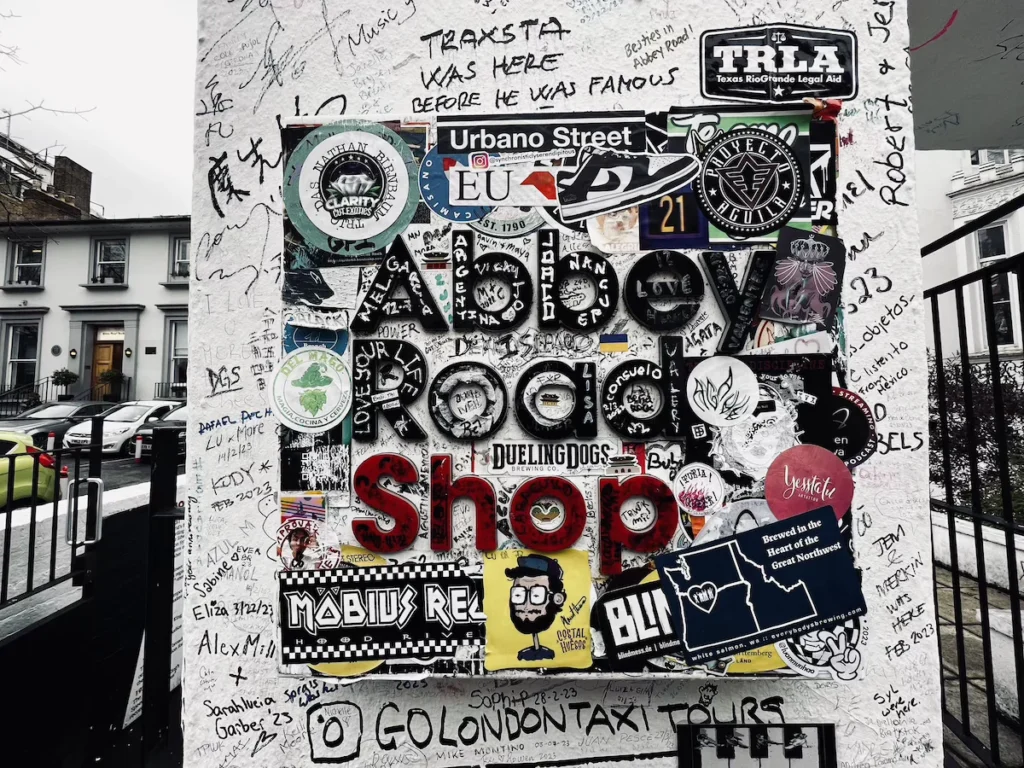
Of course you will need. your picture crossing the road but do remember this is a busy road so be careful.
Pink Floyd’s Battersea Power Station: A Landmark in Rock History
- Tube Station: Battersea Power Station
- Underground Lines: Northern Line (Black)
After Abbey Road, possibly the most iconic of London music landmarks. Famed for the flying pig on the cover of Pink Floyd’s Animals album this old power station has been reborn as a shopping and entertainment destination. Inside the massive turbine hall are shops, cafes, restaurants and even a cinema. The iconic chimneys remain which can be seen across the river and as far back as Ecclestone Bridge just round the corner from Victoria Station. A small plaque at the power station recalls it’s place in music history.
Circus Rd W, Nine Elms, London SW11 8DD
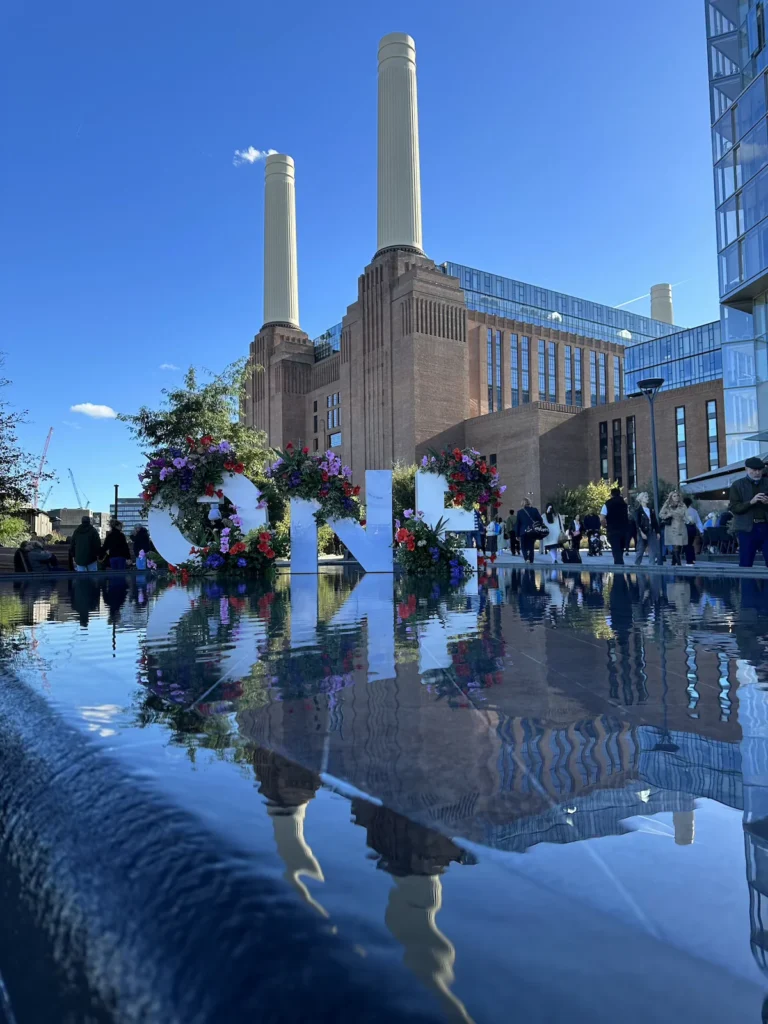
Brixton’s Music History: Bowie’s Mural & The O2 Academy
- Tube Station: Battersea Power Station
- Underground Lines: Victoria Line (Blue)
The Bowie Mural on Brixton Road pays homage to the Starman who grew up in Brixton.
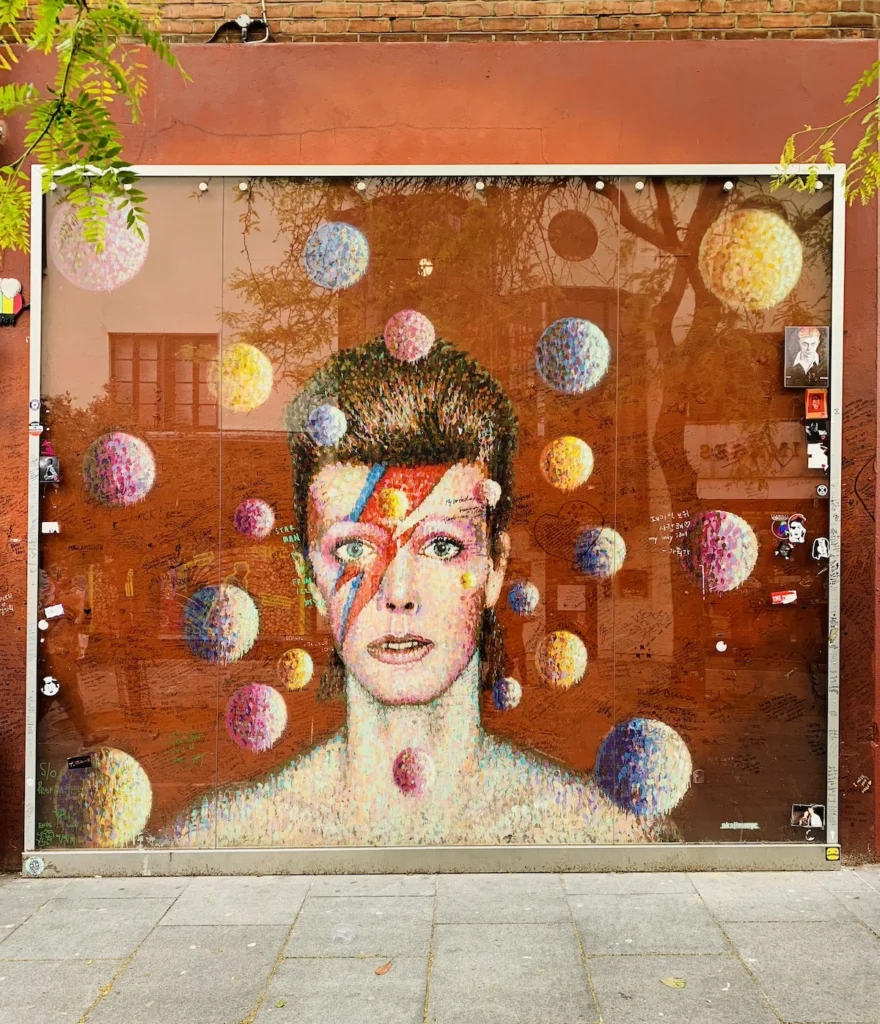
Whilst you ‘re in the neighbourhood you should rock down to Electric Avenue, the first market street in London to receive electric street lighting. The Eighties song from Eddie Grant references the Brixton Riots of the early Eighties, but now it’s a trendy place with cool bars and eateries. Eddie left London to settle in Barbados, building the Blue Wave studios which welcomed over the years acts including Sting and the Rolling Stones.
Electric Ave, London SW9 8JX
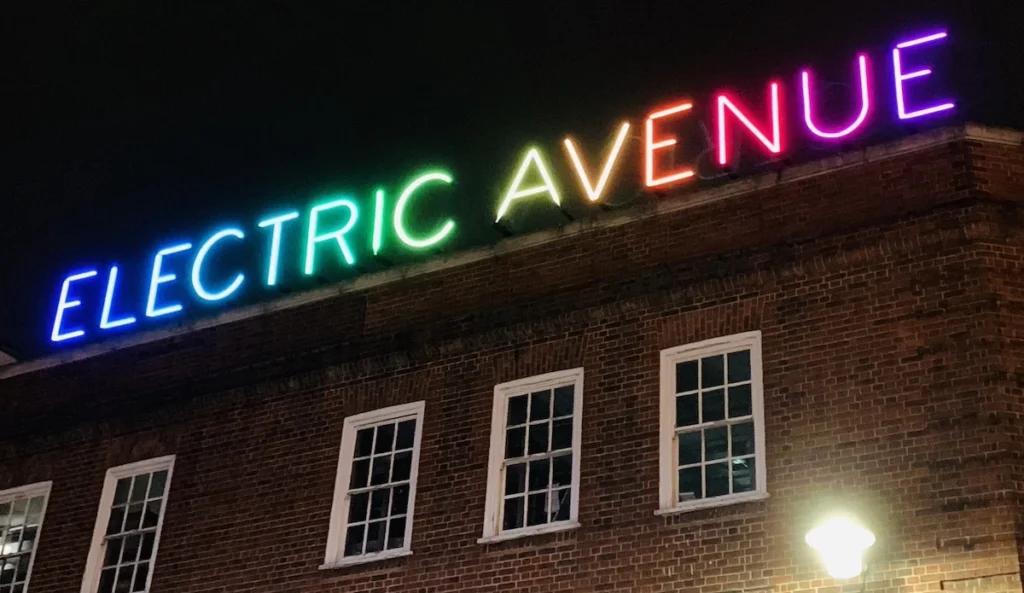
The Brixton Academy (now known as the 02 Academy Brixton) has been a concert hall since 1983. Its unique interior hosts a gently sloping floor that makes it like a shallow amphitheatre making it a great place for intimate gigs. It is here that the Smiths played their final ever live performance.
Brixton Academy 211 Stockwell Rd, London SW9 9SL
The Royal Albert Hall
For a grander concert experience we look to the Royal Albert Hall. An iconic entertainment venue that recently played host to a sell out week from David Gilmour. This beautiful building first opened in 1871 and has remained a popular venue ever since. Eric Clapton is the artist with the most concerts at this one location, headlining over 180 concerts across his career.
Royal Albert Hall Kensington Gore, South Kensington, London SW7 2AP
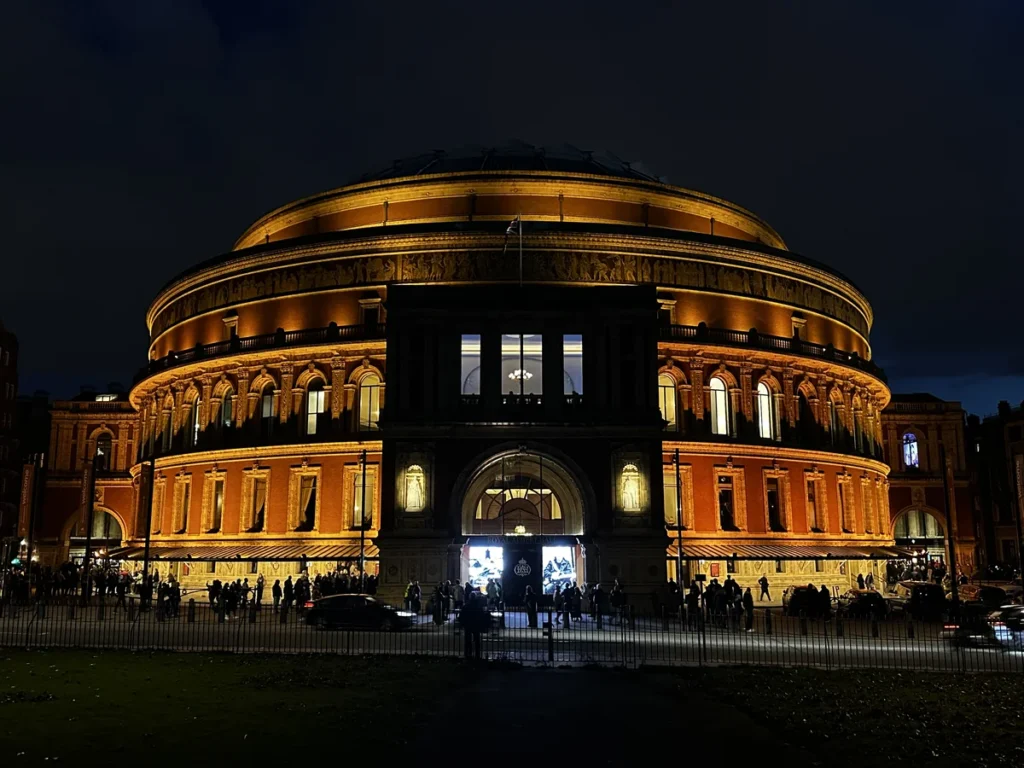
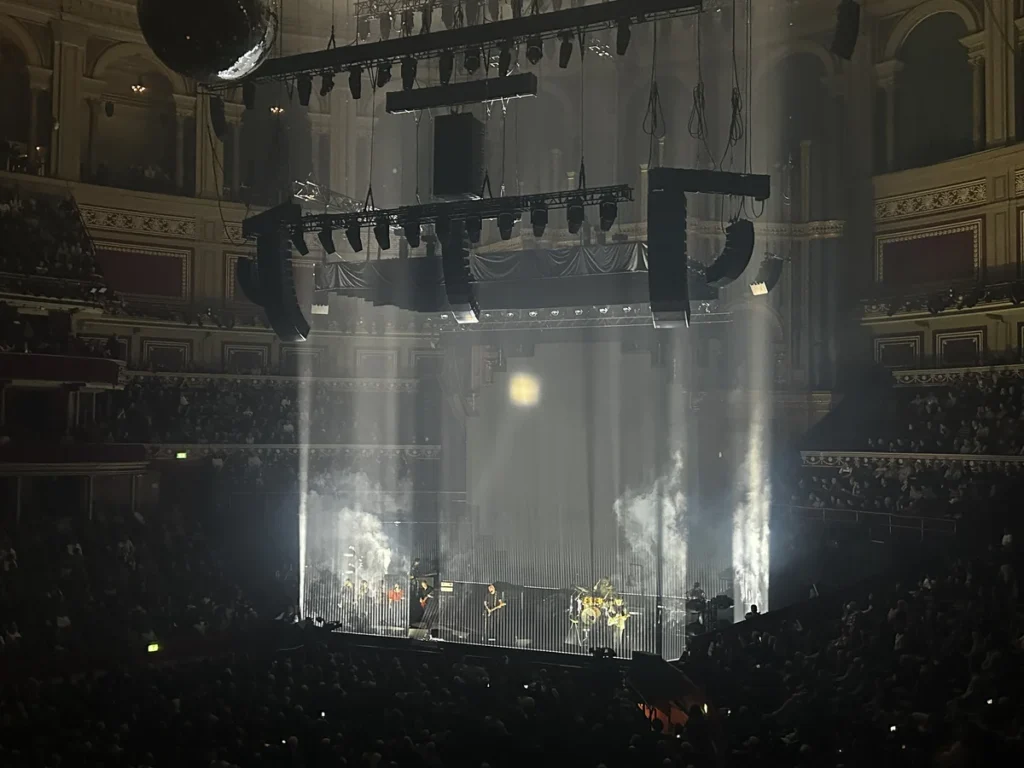
Hammersmith Odeon: Ziggy Stardust’s Farewell & Iconic Concerts
- Tube Station: Hammersmith
- Underground Lines: Piccadilly (Purple), Circle (Yellow), Hammersmith & City (Pink)
The Hammersmith Odeon (now the Eventim Apollo) is a larger concert venue that has played host to many legendary gigs including the last ever Ziggy Stardust performance, captured on film for posterity. It was here in 2014 that Kate Bush performed ‘After the Dawn’ for 22 nights running, her first live performance in over two decades (and I was there!)
It was also the place I saw Marillion, my first ever concert.
Hammersmith Apollo 45 Queen Caroline St, London W6 9QH
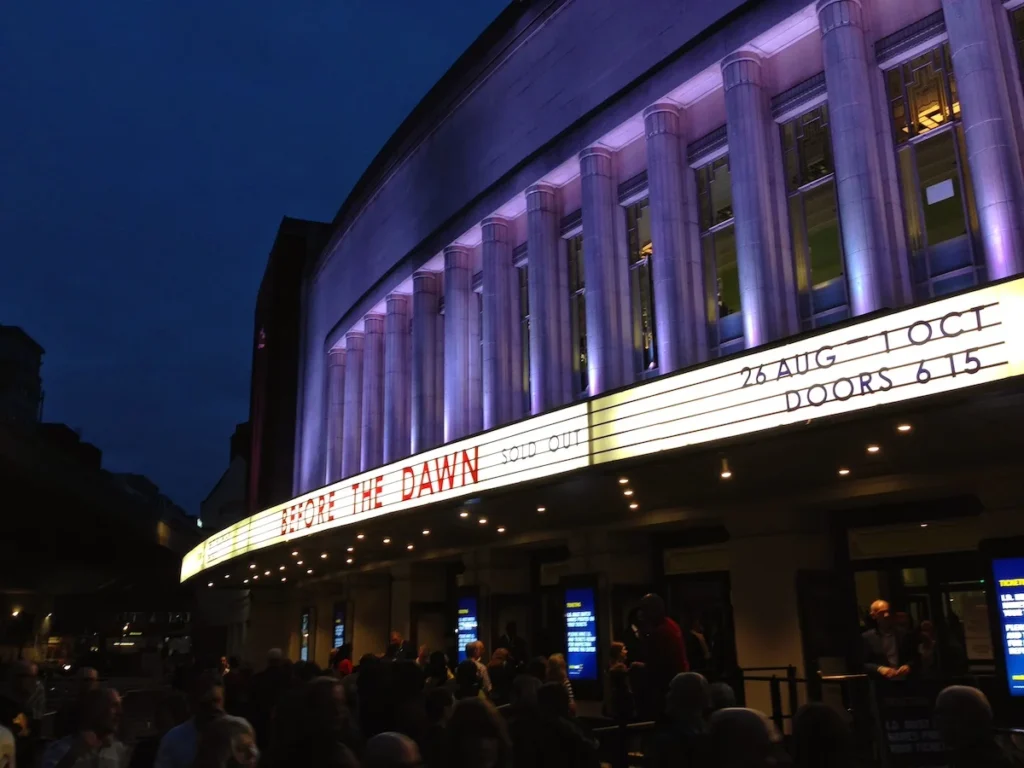
The building itself is beautiful, and features in the sleeves photographs for the Quadrophenia album. The marquee (lettering) around the building is also iconic. This was their tribute to Prince, back in 2016.
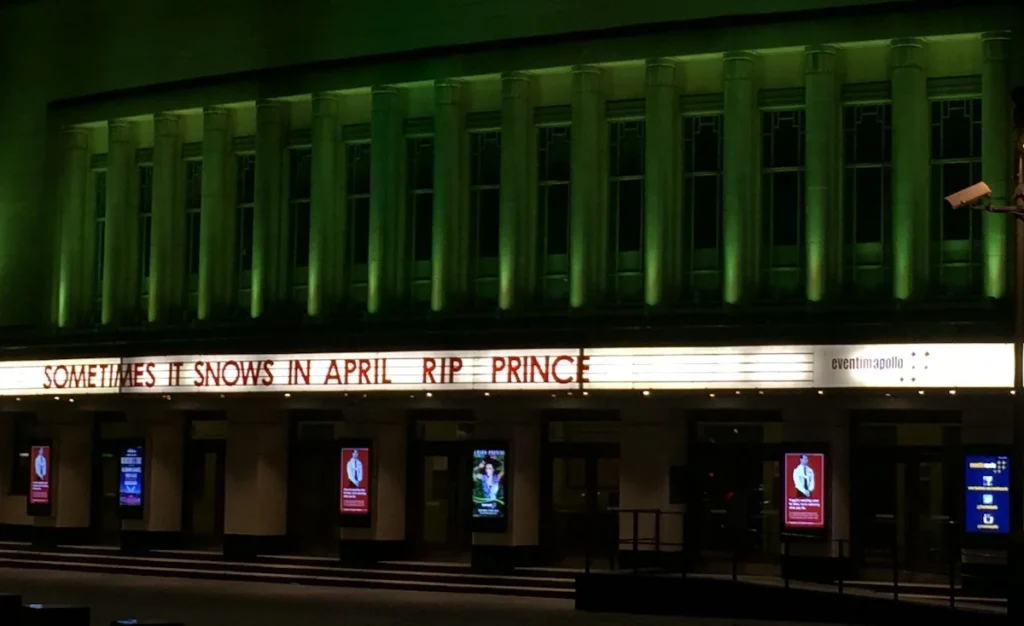
London has been, and remains so rich in both music history and folklore that I can’t fit it all into one post. If you seek more inspiration then check out the original Troubador club, small music venue has been hosting live acts since 1954. It was part of the ‘scene’ back in the Sixties with performances from ‘folkies’ like John Martyn, Joni Mitchell and rockers including Led Zeppelin. If you were here in 1962 to watch a performance from ‘Blind Boy Grunt’ you’d be watching a young Bob Dylan!
Troubador 265-267 Old Brompton Rd, London SW5 9JA
A visitor from LA was so impressed by the club that he took the name home to set up his own club. Doug Weston’s Troubadour is one of LA’s Rock n Roll Landmarks.
What about some lyrics? Remember the Werewolf in London? He had a Chinese menu in his hand from Lee Ho Fook, a former restaurant in London’s Chinatown. He was also spotted sipping a piña colada at Trader Vic’s which used to be in the basement of the Hilton Hotel on Park Lane. His hair was perfect.
Hilton Hotel Hyde Park 129 Bayswater Rd, London W2 4RJ
And if you still need some inspiration, then wait til the sun starts to fade and walk out across Waterloo Bridge. If you time it right you can gaze on Waterloo Sunset and maybe, just maybe you’ll be in Paradise.
Waterloo Bridge London WC2R 2PP
Have you visited these legendary music landmarks? Share your experience in the comments!
